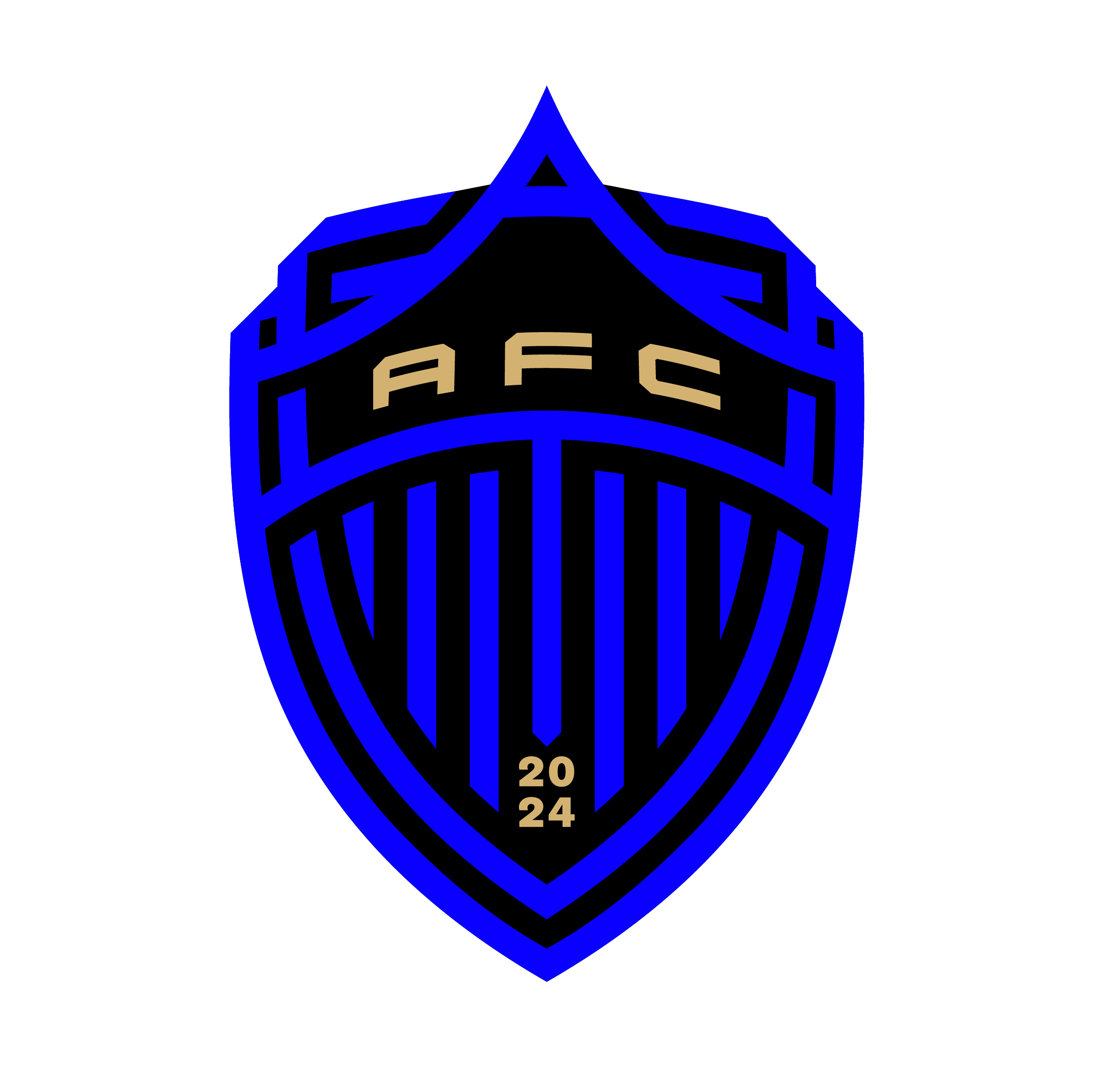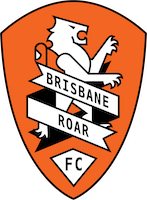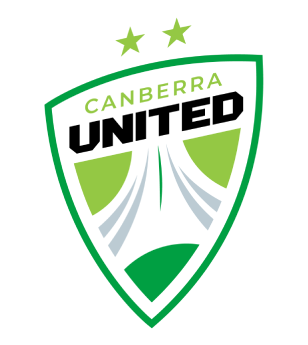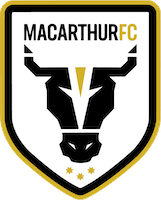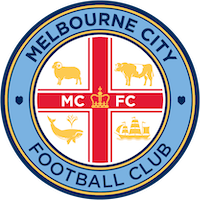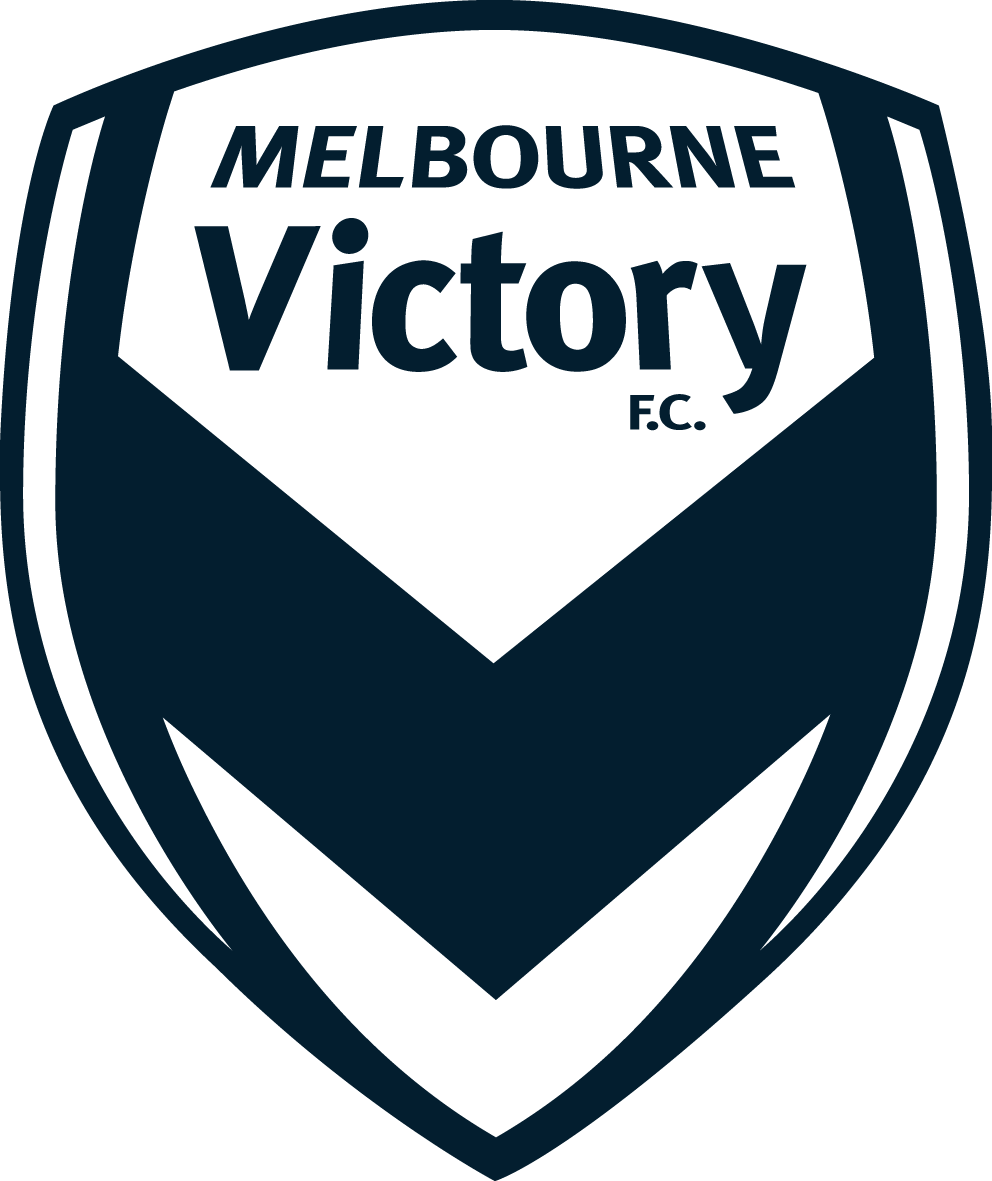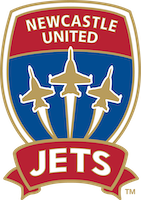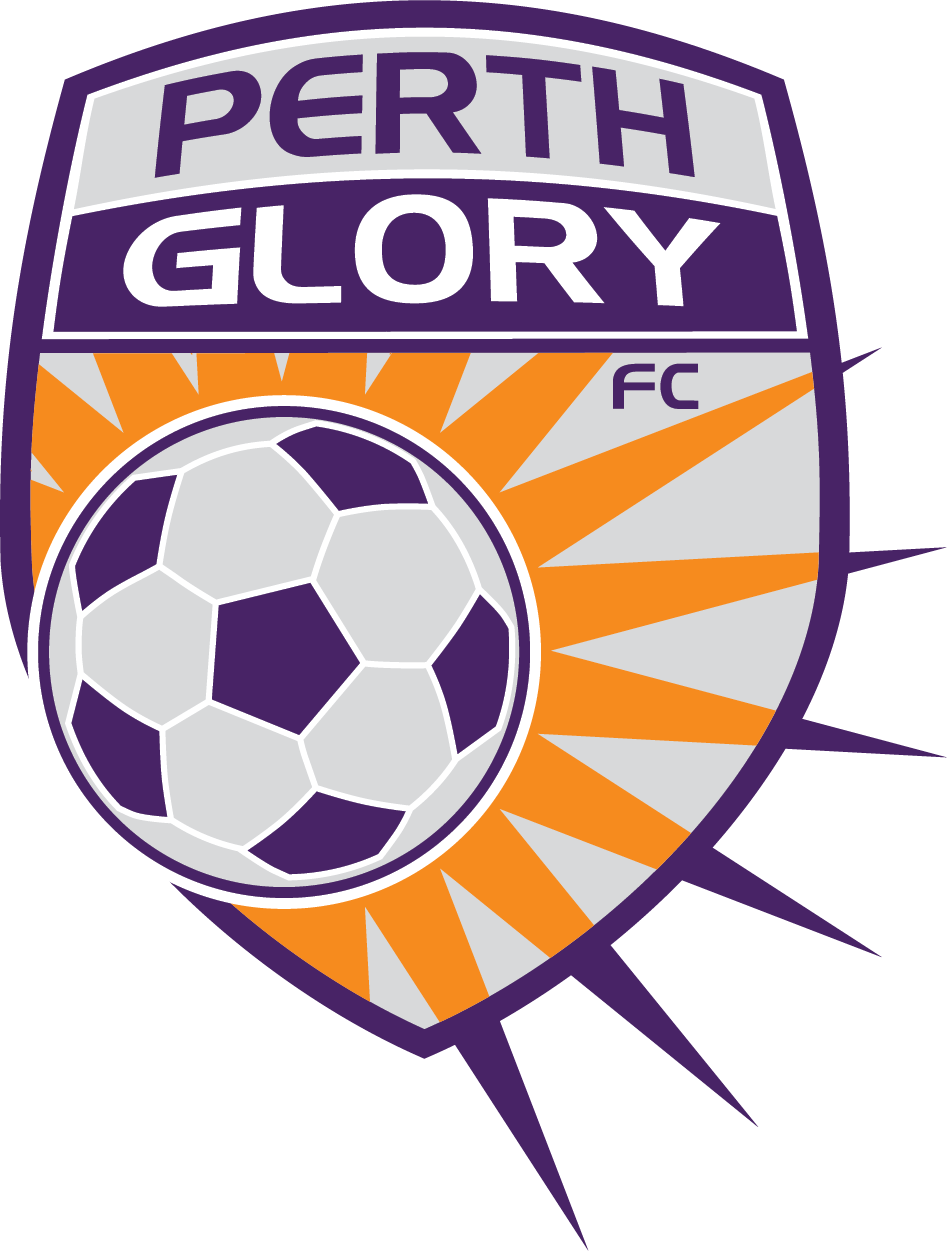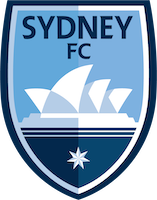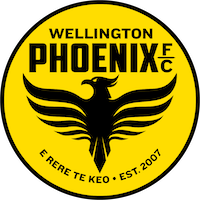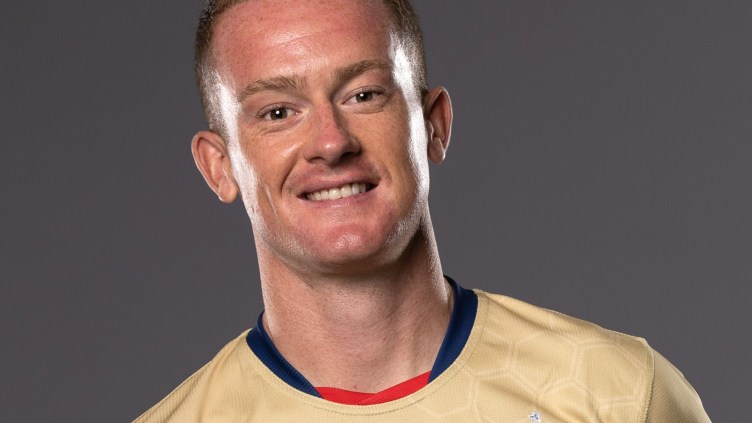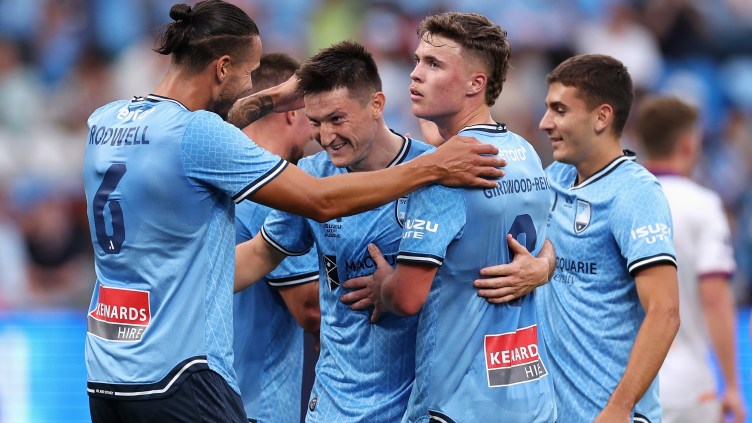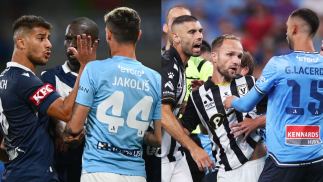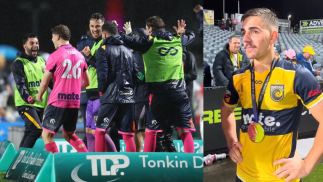Rejuvenated at Newcastle Jets under Arthur Papas, midfielder Brandon O’Neill has discovered new purpose after the death of “my best friend”, writes Tom Smithies.
It was a pass that said everything; a pass that spoke of a player full of confidence, full of belief, full of – in short – happiness.
If that sounds like hyperbole, a phone call to Brandon O’Neill reveals that it’s entirely true. After several tumultuous years – “the most fulfilling, but also the toughest, of my life” – O’Neill has found in Newcastle the sort of purpose and joy in football and in life that the death of his father Myles, “my best friend”, left him fearing he might never feel again.
Perhaps it’s one of the benefits from having observed much of a particular player’s career, but something stood out in the pass that O’Neill played to cut through the Mariners last weekend, freeing Angus Thurgate to feed Daniel Stynes, and spark a low cross converted by Trent Buhagiar.
As a team goal it was inspiring, but O’Neill’s role in it told the story of a player who has moved to a new phase in life since he switched to the Jets in the off-season, who wears comfortably the mantle of leadership and parenthood, and whose football is lifted by all that.
“It still gives me goosebumps,” he says of his relationship with his father, but in a way that is now couched in tones of warmth and inspiration rather than sadness and loss.
In part that comes from how their partnership was brought to a close – when his mother called O’Neill in Thailand to tell him that Myles was close to the end after a long battle with lung cancer, Brandon flew home with his own family and spent two weeks in quarantine, hoping with every passing minute that he would get back to the O’Neill family home in Perth in time.
On the Thursday he was free to go, and on the Saturday he was home to enjoy his father’s birthday party. Two days later, on his actual birthday, Myles passed away. “It felt like he was in complete control of when he wanted to go; that he was ready to go after that,” Brandon says now.
“When I was a 21-year-old in the Perth Glory youth team and not sure if I would make it as a footballer or end up working in Coles, Dad did wonder if I’d make it to that level, to the next step.
“Years later I had life chats with him, and he wasn’t an emotional man but he told me I’d exceeded everything that he thought I could do – that I’d won titles, played for my country, won a grand final in a shootout in front of him in Perth.
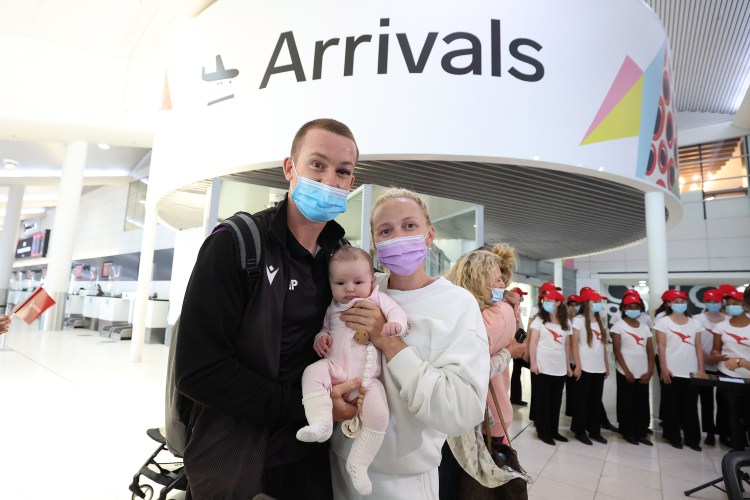
“When I knew he was really ill, and I was battling with the idea of losing my best friend, it was the football that kept him going as long as it did.
“Mam told me that when he was having a bad day, he’d be waiting for a FaceTime with me to hear about my day, to talk about playing football in Korea or Thailand, the tactics, the training, everything.
“One day Mam said he’d had a really bad day, and then we had a long chat and afterwards he looked like he could go out and play 90 minutes himself.”
So the end for Miles when it came was fulfilling and loving, but it was still the end. The death of a parent brings a unique set of emotional and sometimes existential challenges for a grown-up son or daughter. In particular it can throw the responsibilities of adult life into stark relief, especially if the demands of parenthood of your own crowds out the space for grieving.
“When dad passed, I felt very strongly the need to be a husband, a son to my Mam, a father, a brother.. and it just felt that coming home to live and play in Perth was the right thing to do,” O’Neill says now.
“Not from a footballing point of view, to be honest. For the first time in my life I had to choose priorities that were more important than football.
“I know I made the right decision. I had to grieve, to be with my family. The previous two years had been bliss, just really happy. Suddenly my best mate had gone, and even though I was only 26 or 27, it felt like I had to rebuild my life.”
***
There wasn’t a huge fanfare when Graham Arnold brought O’Neill across from Perth in 2015, aged 21 and on the back of 17 games in four years. It was, in all fairness, viewed as a squad signing – but the current Socceroos coach had seen a talent in the midfielder which a year later began to flower.
He and Josh Brillante became the engine room of Arnold’s Sydney FC side that swept everything before it in 2016-17; O’Neill started almost every game, as the Sky Blues won the double, and the year later he played almost every minute of every game as they successfully won the Premier’s Plate again.
In 2019 he made his Socceroos debut against South Korea, and it was no coincidence that a few months later Pohang Steelers bought O’Neill to play in the K League 1, followed a year later by a ‘life-changing’ deal with Thai giants Buriram United.
By then, Myles had been battling the cancer for months longer than his doctors expected, wanting to soak up every minute of his son’s career.
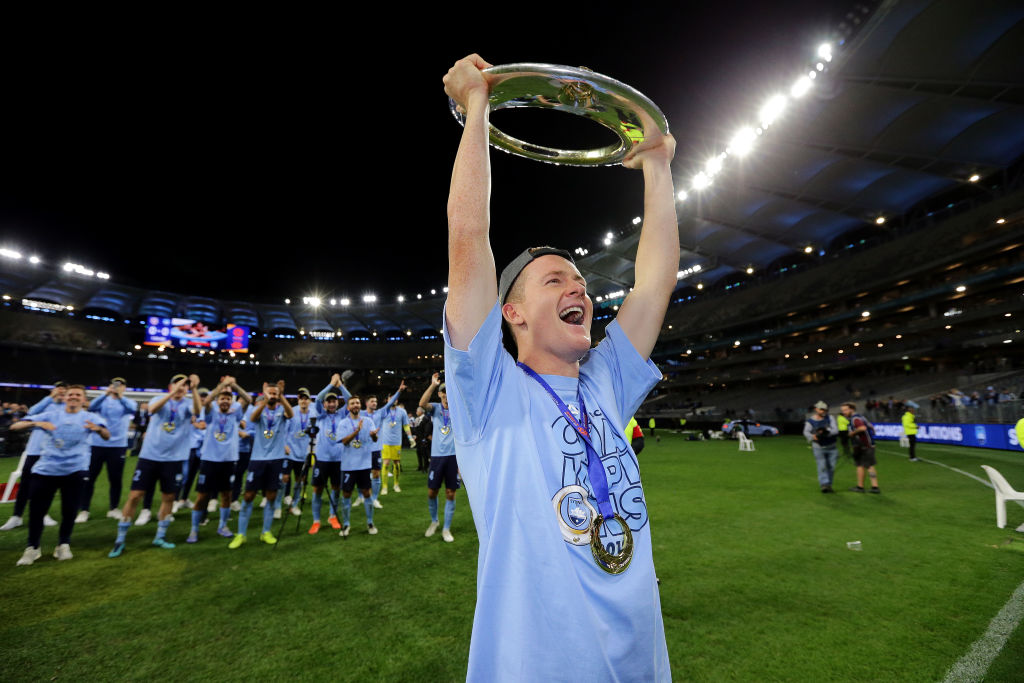
“This chubby little kid from Perth never thought he’d reach the pinnacle, win championships and be part of an amazing era at Sydney FC, let alone play for his country and get the opportunity to go play overseas,” Brandon reflects.
“It was an incredible few years. But when my dad passed, the football had to take a back seat.”
Ultimately it’s usually only the passage of time that can help to soften the pain of bereavement. It took an injury in the middle of last season to make O’Neill realise that he could start thinking about his future again, and what that future had to be.
Damaging his shoulder meant O’Neill was ruled out for the season, and had time to think and reflect on what he calls “a long two years”.
“After eight to 10 months at home I was starting to feel myself again, and it felt that as a family I was able to have healthy, happy conversations with my sister, my Mam, and that we were doing well as a family.
“One thing I kept coming back to was the thought that if my football wasn’t good, I couldn’t put as many pennies into being the best husband or father I could be. My family was in a good space, because of everything we’d put into it.
“From a personal point of view, I was asking questions about how you reset or rejuvenate yourself as a player when you have achieved everything that you can, with your best mate beside you?
“With him not there now, it felt like it was all on me to find the kind of challenges that I needed. I realised that path lay outside of Perth but making that decision was really hard, having to leave behind everything I’d just built up.
“And then I stumbled across Arthur Papas at Newcastle, and it was amazing to sit down with someone who looked at the game in a way that I’d never heard before. In our first few chats he wanted to know everything about my wife, my kids, my mam, my sister… he didn’t want me to be chasing something that I couldn’t reach.
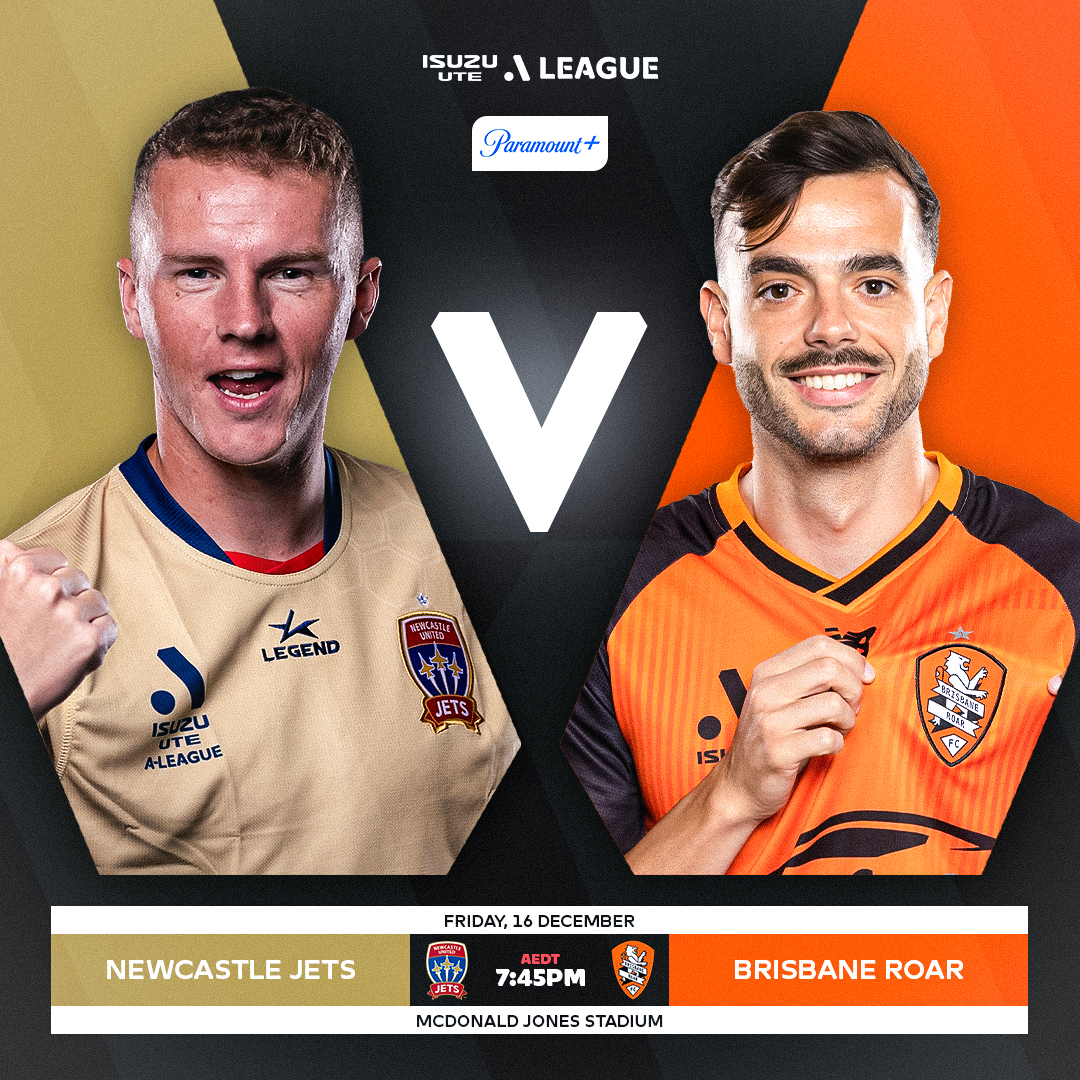
“But now it means I’m chasing a whole new set of goals with a boss who has changed the way I look at the game – the way I’m thinking about it, acting in it, enjoying it, is totally different.
“After two years of agony and ecstasy I’m loving the game again, loving playing for the coach I am. I’m loving playing this deep-lying No 6 role, like a quarterback, a role I never thought I could.
“ I’m pretty sure my old man’s looking down on it all too, from somewhere.”
And, no doubt, looking down prouder than ever.

